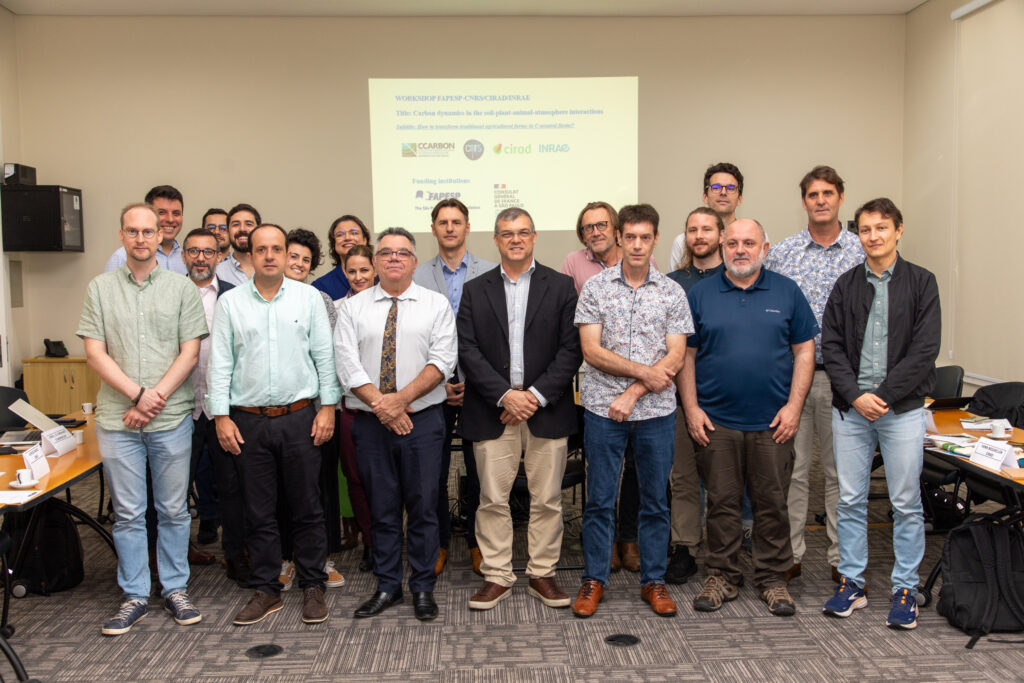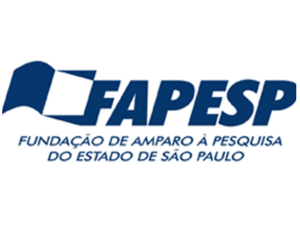French and Brazilian scientists discuss how to transform traditional agricultural practices into carbon-neutral agriculture
Climate scientists from French and Brazilian institutions gathered on November 4, 5, and 6, 2024, at the “Luiz de Queiroz” College of Agriculture (Esalq/USP) to discuss research strategies related to carbon in agriculture. The main objective of the meeting was to integrate research groups and resources from leading institutions in France and Brazil, aiming to strengthen collaborations and create a robust international proposal for future funding opportunities.
The event titled “Workshop FAPESP-CNRS/CIRAD/INRAE: Carbon dynamics in the soil-plant-animal-atmosphere interactions” was organized by the Center for Carbon Research in Tropical Agriculture at the University of São Paulo (CCARBON/USP). It was also supported by the São Paulo Research Foundation (FAPESP) and the Consulate General of France in São Paulo (Consulat Général de France à São Paulo). The meeting was held in a hybrid format (in-person and online) to better accommodate participants from France and other parts of Brazil who could not attend in person.
In an interdisciplinary approach, the discussions brought together researchers working in the fields of agronomy, conservation biology, sustainable development, land management, and socioeconomics. The objective was to integrate the actions of French and Brazilian institutions to strengthen collaborations addressing climate adaptation, greenhouse gas emissions, carbon sequestration, sustainable agriculture, and the socioeconomic implications of these areas. By re-evaluating food production systems in the context of the UN Sustainable Development Goals, the aim is to seek pathways that balance agricultural productivity with biodiversity conservation.
Representing CCARBON/USP, the Directors Carlos Eduardo Cerri, Maurício Cherubin, and Tiago Osório Ferreira were present. The center also counted on the collaboration of researchers Danielle Denny, João L. N. Carvalho, and Ricardo Schenato, along with the scientific and organizational support of Jéssica Campoli, Juliana Ramiro, Lucas Pecci Canisares, Lucila Colichio, Roberto Pinheiro, and Rodolfo Fagundes Costa. Researchers Elisa Bruni and Liviu Petru represented the National Centre for Scientific Research (CNRS, Centre National de la Recherche Scientifique). The CNRS operates across all scientific fields in France and is known for promoting collaboration between disciplines to address global challenges.
Also present were Alfredo Napoli, Cloé Paul-Victor, Daniel Poultney, Florent Tivet, Joannès Guillemont, Pierre Marraccini, Rémi Cardinael, Stéphane Boulakia, and Yann Nouvellon from the French Agricultural Research Centre for International Development (CIRAD, Centre de coopération internationale en recherche agronomique pour le développement). CIRAD is a French research and international cooperation organization focused on sustainable development in tropical and Mediterranean regions.
Additionally, Gema Herrero, Luiz Domeignoz Horta, Mathieu Nogues, and Suzane Reynders represented the French National Research Institute for Agriculture, Food, and the Environment (INRAE, Institut national de recherche pour l’agriculture, l’alimentation et l’environnement). INRAE conducts valuable research on various topics, including water resources, regional agricultural strategies, biodiversity preservation and restoration, risk anticipation and management, and digital agriculture.
The opening of the event featured notable participation from Thaís Vieira (Dean of Esalq and member of the International Scientific Advisory Board of CCARBON/USP) and Fernando Menezes de Almeida (Administrative Director of FAPESP). Following the opening, brief presentations on research were made, followed by evidence-based discussions and networking sessions aimed at enhancing strategic planning. On the last day of the event, foreign participants were taken on a tour of Esalq’s key departments and laboratories that contribute to the development of CCARBON/USP’s researches. The event concluded with a discussion on the draft of a joint research proposal for sustainable landscapes and subsequent reports to be shared globally.
This workshop partnership is based on complementary scientific excellence, strategic relevance, and the impact generated. The renowned research institutions from France and Brazil involved have a solid history of collaboration, with some partnerships established many years ago. This event highlights the importance of international partnerships in tackling the complex challenges of our environments and agricultural landscapes. Here’s to a future of collaborative and impactful research!




Pictures by Fabiano Pereira
Organizing institutions










